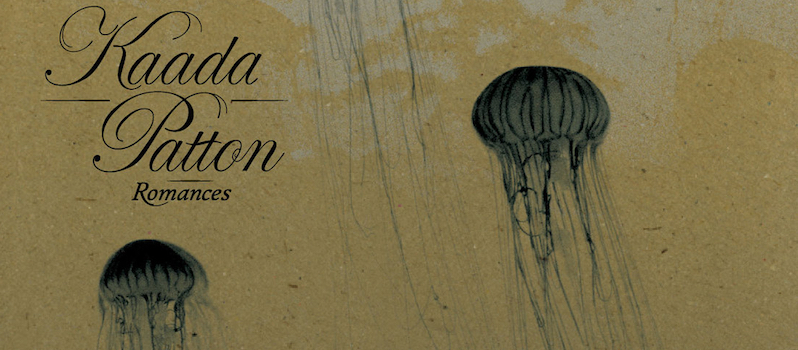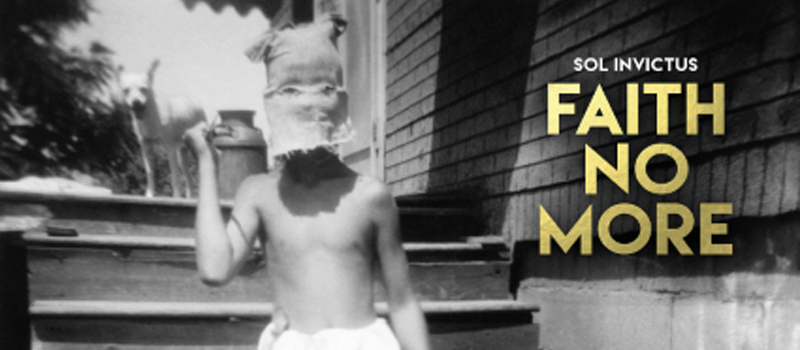The line between sampled and “original” performances is blurred almost entirely beyond recognition on Romances, the densely layered jazz/rock/R&B collage from Norwegian soundscape artist John Kaada and indie carnival barker/avant gardist Mike Patton. In one breath, we hear Patton’s increasingly inventive (and increasingly wordless) vocal performances, a repeating piano measure, or the ominous presence of a swelling church organ. In the next, it’s the tolling of a church bell, the ghost-wail of an uncredited musical saw, a muted sound-byte or tape lurch, the cut-and-pasted succession of found percussion, or a piece of industrial noise framed on the wall like a musical foundation.
The record’s nine tracks, each labeled with the names of 19th century French songs, might sound like cohesive songs with all the sweep and scope of mapped verses and choruses but don’t be fooled. Romances is as much a patchwork of pre-existing material as Dr. Frankenstein’s monster and just as difficult as that mad creation to shake from your mind’s eye.
The record begins, seemingly in the midst of its first sample, with “Invocation,” where the dominant colors are laid out on the palette. There are organs straight out of the black-and-white horror film Carnival of Souls placed front and center, refrains of drums and distorted percussion, occasional strings and synths, a sound effect or two or 10, and the nearly constant presence of Patton, his voice moving often effortlessly between fluid, syrup-coated crooning, demonic gasps and scatting, textured blasts and roars, and poppy, Doo Wop-styled balladeering.
As the record moves along, its scope and sense of ambition broaden. While Kaada and Patton nail everything from soulful odes (“Pitie pour mes Larmes”) to funeral requia (the riveting “Seule”), they do it while working almost entirely outside of easily definable genres and without any conventional sense of backing musicians aiding in “composition” or “performance.” The sounds of the record feel, simply, like they’re there, like pieces of evidence that exist without being consciously constructed. The miracle of it all, though, is that the duo — aided on all tracks by a bassist but only here and there by others (a steel guitarist, two drummers, and a bass clarinetist, to set the record straight) — can portray as seamless something that is clearly composed of countless pieces of found/borrowed material.
But, whether it’s the plucking of a harp (“Crepuscule”), a clip of some nameless operatic solo (“L’absent”), an introductory nursery school refrain on toy piano (“Pensee des Morts”), or a harmonica accompanying some unheard Delta blues (“Viens, les Gazons sont Verts”), it still sounds like their own. (Even in the end, it’s tough to tell if these are, indeed, sampled bits or original performances recorded during Kaada and Patton’s studio outings.)
While a lot of these sorts of raves about ambitious composition or envelope-pushing performance could be (and have been) applied to past Patton works like the all-voice landscapes of Adult Themes for Voice or Maldoror, what makes it easier to fall in love with Romances is its accessibility. Sure, Kaada and Patton seem like ideal partners, and the former has an eerily intrinsic sense of how the latter works, but there are songs and moments on their full-length collaboration that are worth noting behind brainy interpretations of their songcraft.
The aforementioned “Seule,” which runs just a hair under three minutes, is one of the most tragic-sounding and sincerely somber tracks Patton has released in years. “Today, this is my world / You’ll be my girl / I’m awake / It’s my world,” Patton sings repeatedly in a world-weary near-whisper, his voice and some muted horns serving as the backdrop. When the song trails off and Patton sings, in a rare moment of understatement, “Today, this ain’t my world / You’re not my girl / I’m asleep / Goodnight world,” it borders on the heartbreaking.
On the completely opposite end of the spectrum is “Aubade,” where the pitter-patter of drums is egged into a growing fury by Patton’s teasing vocals, or “L’absent,”whose bar-house piano lead-in gives way to a chorus of finger snapping and “La-da-da”s that could get more than a few people in the house to sing along. Even the hypnotic repetitions of “Crepuscule” (which better be French for “The Inverted Scales Song”), which on first blush seem like mild-manner interludes, have a strange appeal to them, a kind of magnetism that invites further listens and grows with each.
Now, when was the last time you said that about a record so clearly focused on experimental collage or finished said record while being obsessed not with the method of its madness but its products? – Delusions of Adequacy, Feb. 2, 2005




